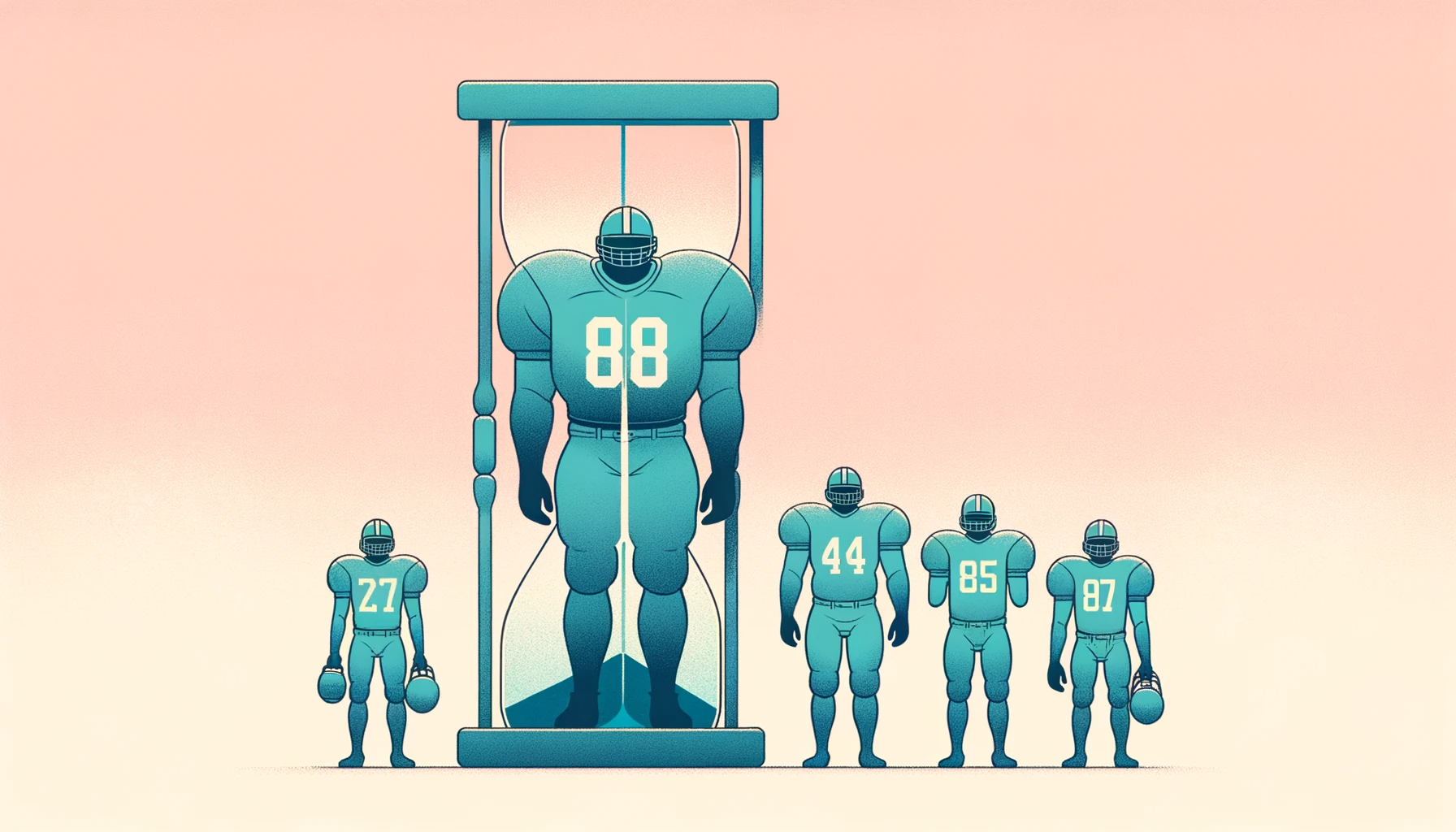In a recent study published in the journal Proceedings of the National Academy of Sciences, researchers examined the association between longevity and a profession playing American football while using comparative groups that were similar in health, educational levels, socioeconomic factors, and race and evaluating the differences in the association based on the position of the player.

Study: The association between playing professional American football and longevity. Image Credit: Created with the assistance of DALL·E 3
Background
Although there have been numerous conducted on the neuropsychological problems in American football players resulting from traumatic brain injuries, a large body of research suggests that American football players live longer than average American men. However, given that most professional football players often require three years of college education and are elite athletes with high salaries, these findings might not be as surprising since these socioeconomic factors strongly influence longevity and health.
Furthermore, most of the evidence on this association comes from studies where the mortality outcomes of American football players have been compared with those of American men in general, who are not similar in aspects of fitness, socioeconomic factors, or education. Additionally, the predominance of a specific race in American football could also influence the findings based on racial disparities in mortality rates. Longevity among football players is also dependent on the position of the player, with defense and offense linemen being exposed to a higher risk of cardiovascular disease and traumatic encephalopathy.
About the study
In the present study, the researchers examined the reported association between longevity and American football players from the comparative perspective of American men with similar educational levels, health, socioeconomic characteristics, and racial group membership. They also evaluated the differences in the association based on the player position and hypothesized that linemen would have reduced longevity compared to players in other positions.
The researchers conducted two complimentary analyses to test the two hypotheses. Using the United States (U.S.) National Health Interview Survey (NHIS) data they compared the longevity of American football players with that of the general population of men in the U.S. The analysis was then repeated for a subsample of men that were comparable along factors such as educational levels, race and ethnicity, health, and socioeconomic factors.
The Pro-Football Archives provided information on football players, and for the first analysis, the researchers selected first-year football players between the ages of 21 and 25 who played between 1988 and 1995. The NHIS data was used to select the comparative group, including the subgroup that consisted of men with similar educational attainment, income, race and ethnicity, and employment status. The exposure was one or more professional football games, with the mortality risk within 25 years being the examined outcome.
For the second analysis, they compared the longevity of professional football players to athletes who were drafted to play American football but did not play professionally. They considered all the men drafted to play in the National Football League (NFL) between 1950 and 1959 and obtained information about their football careers, the year of drafting, the team and position of the player, and the number of games played. For the individuals who were drafted but never played a game, the information on their birth and death was obtained through a comprehensive search of the news archives.
Results
The results reported that football players who played in the position of offense or defense linemen had an overall shorter life expectancy as compared to football players who played in other positions, as well as American men in general who had similar educational, socioeconomic, and health status, and were of similar race and ethnicity.
The second analysis found that compared to men drafted for the lineman position for the NFL but never played a professional game, those drafted as linemen and played at least one game died, on average, two years earlier. The findings highlight the need for similar comparison groups while analyzing the life expectancy of football players since men who play football professionally belong to a specific group based on education level, socioeconomic status, health, and racial membership, all of which are factors that influence longevity.
Conclusions
To summarize, the study examined the reported association between longevity and a professional career in American football through a reanalysis using appropriate comparative groups that were similar in socioeconomic factors, educational levels, health, and race. The overall findings suggested that while no positive association was observed between a professional football career and longevity, lineman players have a comparatively shorter lifespan compared to similar American men and football players who played in other positions.
Source link
credite
